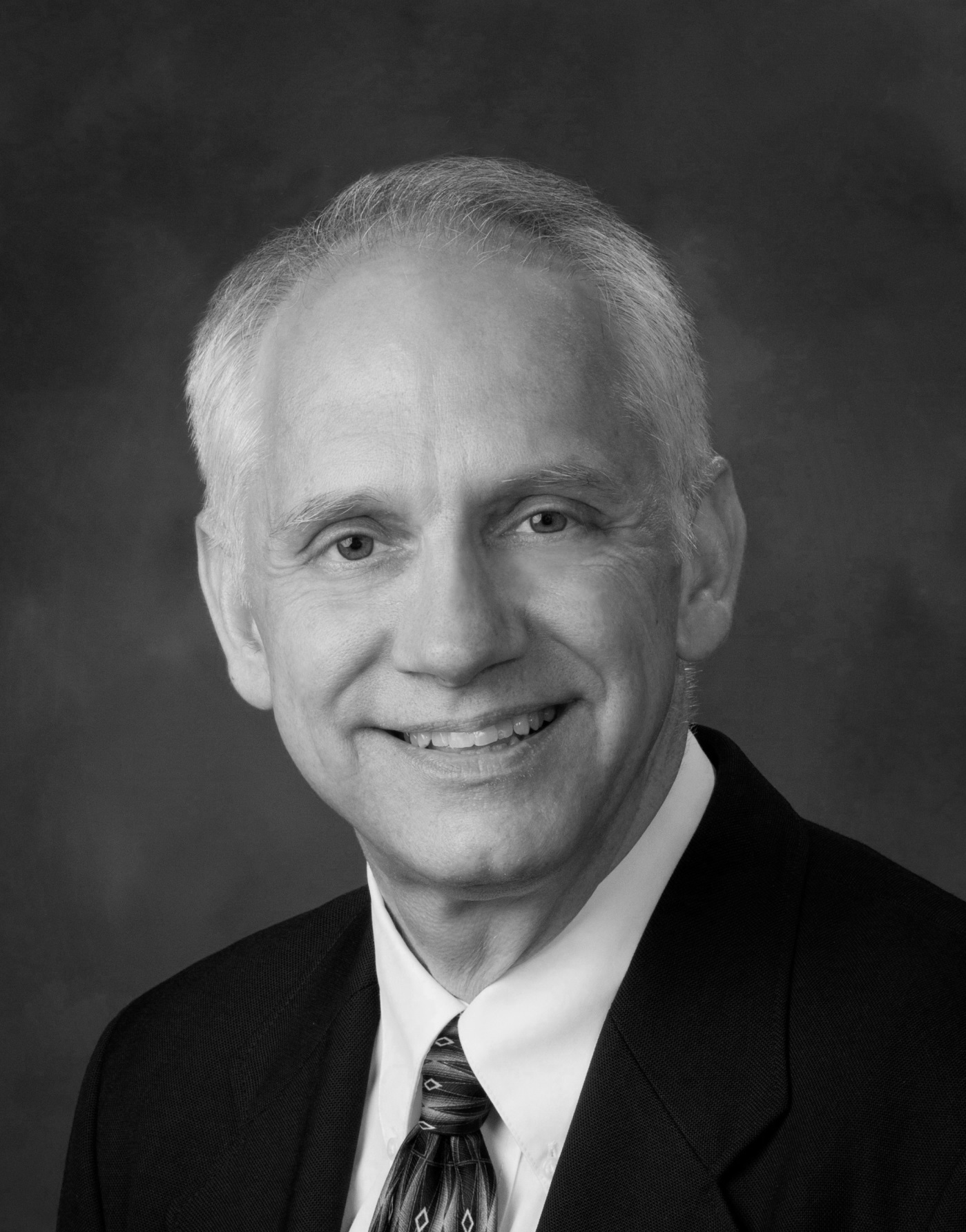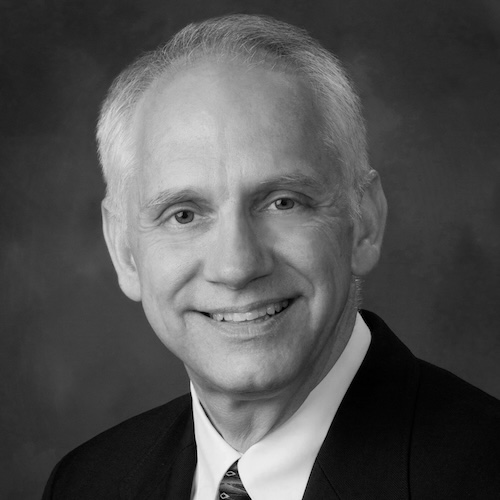
UNL Emeritus Professor of Animal Science, Chris Calkins, has been an international leader in the enhancement of beef value and quality over a brilliant 40-year career as a meat scientist and muscle biologist at Nebraska’s Land Grant University.
Nebraska Hall of Agricultural Achievement
Tribute Citation
Dr. Chris R. Calkins
2024 Honoree
Delivered by:
UNL Chancellor Emeritus Ronnie D. Green
March 22, 2024
Dr. Chris Calkins, UNL Emeritus Professor of Animal Science, has been an international leader in the enhancement of beef value and quality over a brilliant 40-year career as a meat scientist and muscle biologist at Nebraska’s Land Grant University. Throughout his distinguished career, he published hundreds of refereed journal articles, book chapters, abstracts, and conference proceedings, holds 6 patents, and received over $6.5 million dollars in external research support.
Chris is a native of Lake Stevens in the state of Washington, where he grew up on a small acreage and was involved with beef cattle in youth development programs. He excelled as a leader early on in life – serving as the state president of the Washington Association of FFA his senior year in high school. He moved through his formal education quickly, earning a B.S. from Texas A&M and M.S. from the University of Tennessee, and completing his Ph.D. in meat science at Texas A&M University at the age of 25. In 1980, he started service as an assistant professor in UNL’s Animal Science Department, where he excelled as a researcher and educator until his formal retirement in August of 2021. He described coming to Nebraska as full circle, as his Dad was born and raised in Custer County.
Dr. Calkins has specialized in beef quality research that has advanced the field of meat science and had profound impacts on the US and international meat industry and consumers. Major research initiatives throughout his career have included:
1) Adding Value to Beef--Through a comprehensive industry-funded “Beef Muscle Profiling” project, he led a research team that ultimately identified new beef value cuts from the beef chuck – the flat iron steak, the petite tender and the ranch steak. Cattle Fax estimated the financial impact of that project at $50 - $70 per head, with an annual impact of $1.5B. Today, the industry sells 100M pounds of flat irons and almost all teres major muscles are sold as petite tenders. Given that Nebraska produces between 20-25% of the market cattle in the U.S., his research has had an impact of over $6B to Nebraska alone since its inception.
2) Instrument Grading for Beef -- Working with UNL colleagues Jeyam Subbiah and Ashok Samal, Calkins was an integral part of a team developing a grading instrument capable of predicting beef tenderness from an image of the ribeye. Six patents have been awarded and a small business has been created to commercialize this technology.
3) Wet Distiller’s Grains and Beef Quality -- Calkins was among the first to demonstrate that feeding distiller’s grains to cattle increases the amount of polyunsaturated fatty acids in the meat, which can compromise the color stability in the retail meat case and increase the presence of off-flavors. He demonstrated that feeding mega-doses of vitamin E to cattle mitigates these detrimental consequences to meat quality, allowing producers to benefit from this important feed source without compromising the quality of beef sold to domestic and international consumers, while also enhancing tenderness and shelf-life.
3) Consumer Marketing Research -- Chris led a team of graduate students and agricultural economists who conducted innovative research applying experimental economics methodologies to meat science. This group was the first to demonstrate the economic value of beef flavor contributed by marbling, willingness-to-pay for preferred product characteristics in domestic and imported beef, and the economic benefits of dry-aged beef.
4) Dry-Aged Beef -- Recent research has dispelled the myth that low levels of relative humidity lead to excessive moisture loss, while resulting in enhanced flavors. To create consistent, repeatable conditions, the Calkins team developed dry-aging chambers for a single cut of beef where variables such as relative humidity, temperature, and air flow can be controlled while continually monitoring weight loss. Factors such as pH, relative humidity, oxygen concentration (low oxygen conditions), antioxidants, and bone-in vs. boneless cuts have been evaluated to determine the impacts on dry aged beef palatability and yield, to optimize dry age flavor, tenderness, and product yield.
Beyond his research, Dr. Calkins has been a tireless supporter of international marketing for beef from Nebraska, delivering highly effective presentations and cutting demonstrations in Hong Kong, Taiwan, Macau, France, Spain, Korea, the United Kingdom, Italy, the United Arab Emirates, Jordan, Bulgaria, Colombia, Chile, and China; and has given multiple presentations to visiting trade teams from around the world. These efforts have supported the Nebraska initiative to establish beef from Nebraska as an international quality brand, ultimately increasing demand for products from our state.
Dr. Calkins taught countless undergraduate students about fresh meat science, graduate students about meat and muscle biology, and has served as the major professor for over 50 graduate students. His students have excelled in academia, the meat industry, and in government. He has provided special educational opportunities to international students from Brazil, Mexico, Costa Rica, Sri Lanka, Puerto Rico, and South Korea, among others.
Chris has been widely recognized and honored for his contributions. The muscle profiling team was awarded the $10,000 World Prize in Meat Science and Technology by the International Meat Secretariate in 2004, the first US recipient of the award. He has received the Distinguished Meat Research Award from the American Meat Science Association (AMSA), the Meat Research Award from the American Society of Animal Science (ASAS), and the Educator of the Year Award from the North American Meat Processors. He received one of the highest awards given by the University of Nebraska –the Innovation, Development and Engagement Award in 2012. He is a Teacher Fellow of the National Association of Colleges and Teachers of Agriculture and a Fellow in both AMSA and ASAS. His contributions to industry have been recognized by the ASAS Industry Service Award, the Nebraska Agribusiness Club Public Service to Agriculture Award, the Nebraska Cattlemen Industry Service Award, the Nebraska Beef Council Prime Promotor Award, the Booster Award from the Nebraska Pork Producers Association, and the Nebraska Corn Board Livestock Award. Recently, he was selected to enter the Meat Industry Hall of Fame and has just been named a recipient of the 50 Over 50 Award in innovation by the Bloc, a community organization, for “individuals who see opportunity where others don't, break down walls, challenge the status quo, and bring about positive changes to all.”
Chris and Ellen, his wife and partner of 47 years, are the proud parents of two daughters and adoring grandparents of two grandchildren. He is an avid runner and has previously competed in 19 marathons.
In recognition of a lifetime of exceptional contributions through research and education in meat science and muscle biology benefitting the beef industry, as an exceptional advocate and promoter of Nebraska beef quality around the world, an innovator in technology for enhancing beef value, a loving and model husband, father, and grandfather, and indeed an outstanding leader for all of Nebraska agriculture – the Nebraska Hall of Agricultural Achievement proudly bestows upon Dr. Chris R. Calkins the 2024 Honoree Award.
